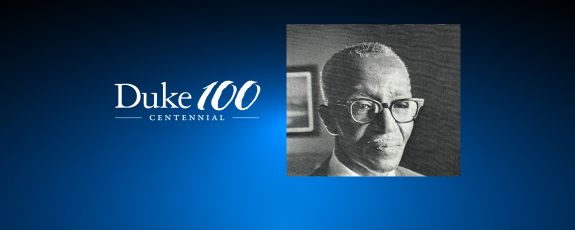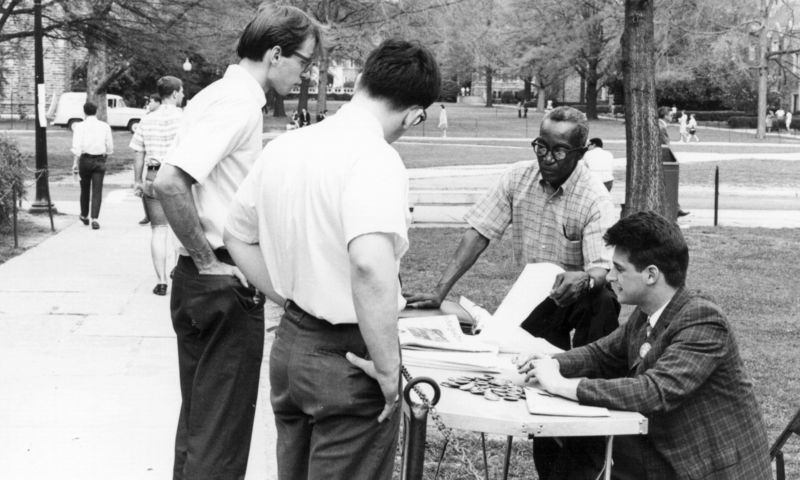
A Janitor’s Visionary Leadership Creates Change
J. Oliver Harvey fought for desegregation, better pay during his 23 years at Duke

In late 1965, Duke's non-academic employee union, Local 77, was two months old when founder J. Oliver Harvey learned of dismissals of union-affiliated campus employees. After his night shift as a janitor on West Campus, Harvey visited several residence halls, urging housekeepers to join him in meeting with a manager.
In the manager’s office, with dozens of housekeepers waiting outside, Harvey demanded the reversals of the dismissals. The next day, Harvey, along with professors and 200 students, demonstrated on a campus quad.

Shortly after, the minimum wage increased, and employees received life insurance and a grievance procedure.
“We tried to work in combination with the people in the community of Durham because what affected us at Duke affected the people in the community as well,” Harvey recalled in an oral history interview with a Duke graduate student in 1976.
During his 23 years at Duke, Harvey fought for desegregation, better pay and improved benefits and working conditions for roughly 6,000 non-academic employees.
He founded Local 77, Duke’s largest union until 2023, and by 1974, he served on Duke’s 50th anniversary advisory committee.
“I will pray that this occasion be a success as we all want it to be,” Harvey wrote about the anniversary to a Duke administrator in May 1974. “May it be a needed and guiding light recognizing that no longer are people given preference because of their position; no longer are people labeled because of the texture of their skin, but are accepted because of their character. This, indeed, has been my hope for years and years.”
Born in 1906, Harvey, the oldest of 10 children, grew up in Franklin County. After high school, he moved to Durham to work at Liggett & Myers Tobacco Co. and Watts Hospital before taking a defense job in Virginia during World War II.
When he joined Duke in 1951, he became a leader for progress.

Local 77 played a crucial role in the 1968 silent vigil on campus, a response to the assassination of Dr. Martin Luther King Jr. that featured a 13-day work stoppage by Duke employees and a peaceful demonstration drawing around 1,500 people.
On day 13, Harvey received a call at home informing him that Duke’s Board of Trustees wanted to negotiate an end to the work stoppage. The agreement to end the vigil included the creation of the “Employees Council,” co-chaired by Harvey. The council in 1969 negotiated higher wages, better benefits, and a clearer non-discrimination policy for Duke’s employees.
As Local 77 continued its work, Harvey’s role in the evolution of Duke gained new appreciation. A few years after Harvey retired in 1974, Duke’s Board of Trustees approved naming in his honor a cul-de-sac near campus designated for faculty housing. Harvey Place can still be found in the neighborhood.
“Oliver had visions of ways to make the university community a better place,” then-Duke University President Keith Brodie wrote in a 1987 letter to Harvey's wife after Harvey‘s death at age 80, “and the leadership to make those visions a reality.”
Do you have a story you would like for us to cover for the Centennial year? Send ideas and photographs through our story idea form or write working@duke.edu.
Follow Working@Duke on X (Twitter), Facebook, and Instagram.